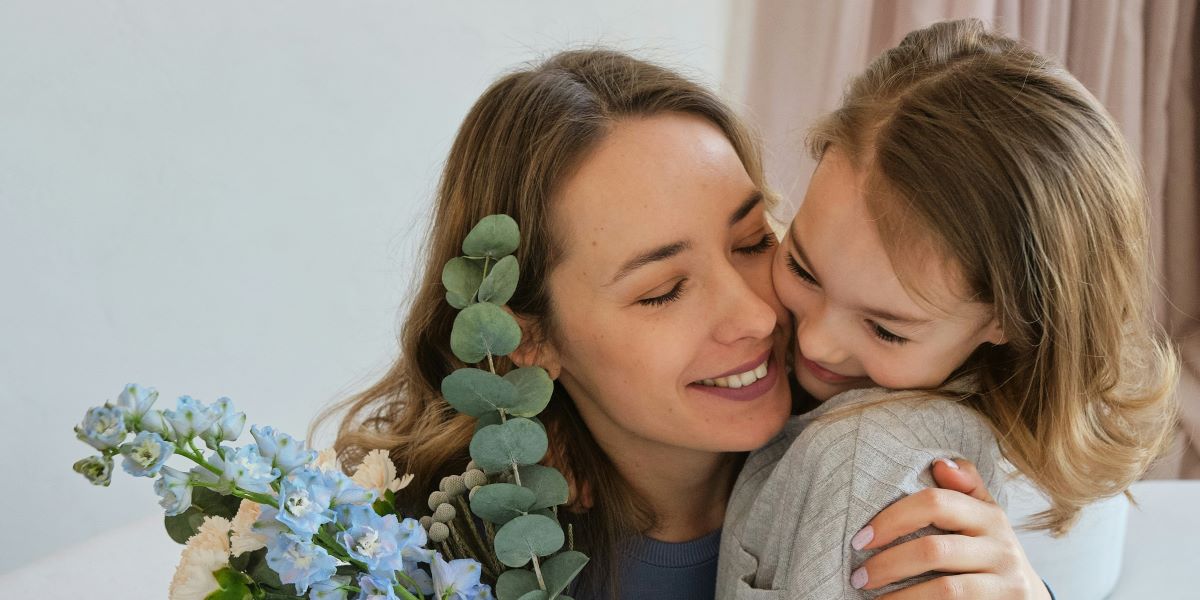Motherhood is a deeply transformative and life-altering experience, often defined by love, care, and sacrifice. While society traditionally associates motherhood with biological mothers, many women fulfill the role of a mother without the biological connection. These “non-biological” mothers—grandmothers, stepmothers, foster mothers, aunts, and close family friends—offer the same love, support, and care to children and families. Despite not always receiving the same recognition as biological mothers, their contributions are just as vital and deserving of celebration. This article explores the importance of recognizing and celebrating non-biological mothers and the ways in which their roles enrich families and communities.
Read also: Why Sustainable Habits Matter for Women Over 35: A Guide to Long-Term Health and Well-being
The Unique Role of Non-Biological Mothers
Non-biological mothers may not have given birth to the children they care for, but the love and support they offer are no less significant. These women step into the role of a mother through various circumstances—whether by marriage, adoption, or the need to step in when a biological mother is unable to provide care. The role of non-biological mothers can be complex, often requiring sensitivity, patience, and a deep commitment to nurturing and guiding children in their lives.
One of the key characteristics of non-biological mothers is their ability to form strong, loving relationships with children, despite the absence of a biological bond. Many non-biological mothers build their relationships through shared experiences, daily care, and emotional support, creating a connection that is as powerful and meaningful as any biological connection. This unique bond is built on trust, understanding, and unconditional love, qualities that are integral to the mother-child relationship.
Acknowledging the Challenges of Non-Biological Mothers
Non-biological mothers often face unique challenges that biological mothers may not encounter. Stepmothers, for example, may face resistance from children who have established a close bond with their biological mother. They may need to navigate complex family dynamics, balancing their new role with the need to respect existing relationships. Similarly, foster mothers and adoptive mothers may face emotional challenges, such as attachment issues or the uncertainty of a child’s future.
Despite these challenges, non-biological mothers display remarkable resilience. They often put in the effort to build trust, create safe spaces, and provide the love and care necessary for children to thrive. Their dedication to a child’s well-being—whether they are a stepmother, grandmother, or family friend—is a testament to the transformative power of love, and it deserves to be celebrated just as much as that of a biological mother.
Celebrating Non-Biological Mothers on Special Occasions
One of the most significant ways to celebrate non-biological mothers is by honoring them on Mother’s Day or other special occasions. While the day is traditionally centered around biological mothers, it is important to recognize that non-biological mothers also play a central role in many families. Their love, dedication, and sacrifices deserve to be acknowledged and appreciated.
Recognizing non-biological mothers on Mother’s Day can be as simple as giving them a heartfelt card or a thoughtful gift. It’s important to make these women feel valued, appreciated, and seen for the positive impact they’ve made in the lives of their children. A personal message expressing gratitude for their love and support can make a world of difference. Children and families can take this opportunity to reflect on the ways in which non-biological mothers have shaped their lives, offering a moment of recognition and deep appreciation.
In addition to gifts and cards, spending quality time together is another meaningful way to honor non-biological mothers. This could involve a family gathering, a special meal, or even a shared activity that celebrates the bond between the family and the non-biological mother. The key is to show appreciation and acknowledge the unique role she plays in the family, recognizing that the love and care she provides are no less important than those of a biological mother.
Ways to Recognize Non-Biological Mothers Beyond Mother’s Day
While Mother’s Day is an important time to celebrate non-biological mothers, it is essential to recognize their contributions year-round. There are many ways to show appreciation for the non-biological mother figures in one’s life, including:
-
Acknowledging Their Role in Family Life: Non-biological mothers may not always receive the public recognition they deserve. Acknowledging their role in family conversations, at family events, and in day-to-day interactions can help validate their importance. A simple “thank you” for their contributions can go a long way in making them feel appreciated.
-
Celebrating Shared Memories: One way to celebrate non-biological mothers is by reflecting on shared memories. Whether through photo albums, memory books, or storytelling, reminiscing about special moments can reinforce the bond and show gratitude for their impact.
-
Creating Personalized Gifts: Thoughtful, personalized gifts that reflect the unique relationship between the non-biological mother and her family members can be powerful tokens of appreciation. This could include a custom piece of jewelry, a framed family photo, or a handmade craft that celebrates her role in the family.
-
Building Supportive Communities: Non-biological mothers often navigate challenges that can be emotionally and psychologically taxing. Building a community of support—whether through family members, friends, or support groups—can provide the emotional encouragement needed to thrive in their role. This sense of community helps them feel valued and supported, reinforcing their importance in the family.
The Lasting Impact of Non-Biological Mothers
Non-biological mothers have a lasting impact on the children they care for. They provide emotional stability, guidance, and nurturing that contribute to a child’s well-being and development. In many cases, non-biological mothers play an instrumental role in helping children build healthy relationships and positive self-esteem, which extends well into adulthood. They often offer a different perspective and support system that enriches the child’s life.
For children who may have lost a mother or whose biological mother is unable to provide the necessary care, non-biological mothers fill a critical void. They step in and offer a loving and stable environment that allows children to thrive. The love, care, and attention provided by non-biological mothers can often be the foundation upon which children build their futures, making their impact immeasurable.
Motherhood is not limited to biological ties—it is about the love, care, and support that individuals provide to children. Non-biological mothers, including grandmothers, stepmothers, foster mothers, aunts, and close family friends, play an essential role in shaping the lives of children and families. Their contributions may sometimes go unnoticed, but they are no less vital than the love given by biological mothers. By celebrating non-biological mothers, whether on Mother’s Day or throughout the year, families can show appreciation for the profound impact these women have on their lives. In honoring all forms of motherhood, society can recognize the diverse ways in which love and care are given, ensuring that everyone who shapes a child’s life is celebrated.
Read also: Oat Burgers: A Nutritious, Plant-Based Alternative to Traditional Burgers





